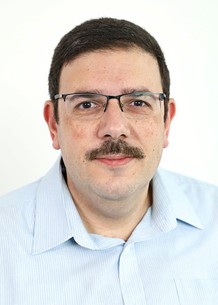Colon, rectal and anal disorders, such as cancer, crohn’s and colitis may be diagnosed or treated by the Colorectal team at LTHTR. Our specialist colorectal team consists of Colorectal surgeons, Endoscopists, Oncologists, Radiologists, Histo-pathologists and Clinical Nurse Specialists.
Contact us:
The Colorectal Specialists Nurses work from 8am to 6pm Monday to Friday.
If you have any questions or concerns at any time, you can contact the Colorectal cancer specialist nurses on 01772 522371. If we are not in the office at the time of your call an answer machine is available. If you reach this please leave a message. Your calls will be returned as soon as possible, however please be aware this may not be the same day.
Please note that all telephone calls from the hospital are from an anonymised or withheld number. If your telephone blocks anonymised calls, we may not be able to contact you. Please let us know if this affects you.
Please note that this is not an emergency service and does not operate out of hours. You should contact your GP if you need advice on the same day.
Understanding why you have been referred to hospital
Your GP has asked for you to have an urgent appointment or test because you have displayed symptoms which may be caused by cancer
Whilst it is unlikely that you have cancer it is very important that you are seen by a specialist as soon as possible.
The suspected cancer faster diagnosis system has been introduced across the country so that patients with symptoms that could be caused by cancer are seen by a specialist quickly.
Most patients referred under this system turned out not to be diagnosed with cancer, but early diagnosis can increase the success rate of many cancer treatments.
What happens when you have been referred
Your GP will send your referral to Lancashire Teaching Hospitals.
If your GP gives you a blood test performed as part of your referral you will need to arrange to have a blood test through your GP surgery before you attend your first hospital appointment. These blood tests are required as soon as possible for diagnostics to be arranged at the hospital.
If you are unable to access a blood clinic within 24 to 48 hours, then please use the urgent walk-in clinic at Royal Preston Hospital outpatient department.
Opening hours are 08.30am to 4.30pm Monday to Friday
What to expect at your first appointment
Following a referral from your GP you will receive an appointment for a telephone consultation from one of the specialist clinicians. If the patient would prefer a face to face appointment this can also be arranged.
You will be given an approximate time to expect the call and the appointment would be expected to last 10-15 minutes. The clinician will ask you a variety of questions including why you have been referred to the colorectal service, the problems/concerns you have been having, your past medical history, any medications you are taking and any allergies you may have. You may find that you are repeating all the information that you have already told the GP, but it is important for us to try and understand your concerns and address all the problems you are having.
If you are attending the hospital for a face to face appointment, please be aware that the clinician may need to examine your tummy and also examine your back passage. This will depend on the symptoms you are having. Following this consultation you are likely to require specialist investigations to assist in diagnosis. These tests will be done as an outpatient and will be carried out within 2 weeks of your initial consultation.
You can find more information about diagnostic tests and what they involve on the next tab.
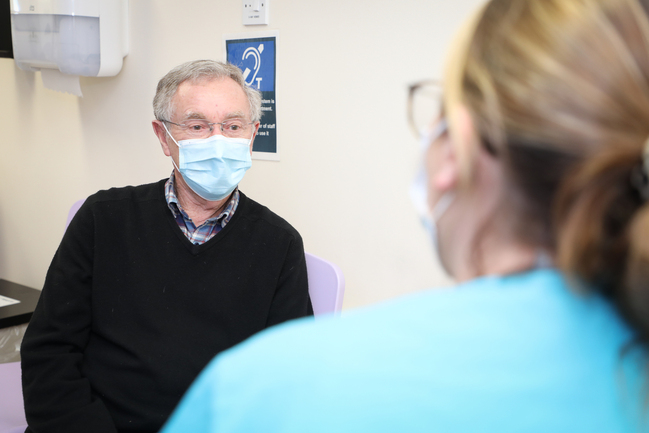
Diagnostic Tests
Following your first consultation you are likely to require specialist investigations to assist in your diagnosis, these often include:
- Colonoscopy
A Colonoscopy is carried out as an outpatient in one of our Endoscopy departments at either Preston or Chorley hospital. A colonoscopy looks at the inside of the whole length of the large bowel (Rectum and colon)to help identify abnormalities. You will be given instructions by the endoscopy department about what to eat and drink in the 24 hours before your procedure, and you will receive a prescription for some strong laxatives to empty your bowel prior to the test.
The endoscopy teams at Preston and Chorley will ensure that you are comfortable during the procedure. They will talk to you about having a sedative to ensure you are relaxed while you have the colonoscopy.
You will be assisted to comfortably lie on your side and the endoscopist will gently pass a flexible tube into your back passage. There is a small camera and light on the end of the flexible tube and this helps the endoscopist identify any areas of abnormality, take pictures and take small samples (biopsies) if needed to help with diagnosis.
Most patients can be discharged home following a couple of hours of observation. If you have had sedation you will need someone to collect you following the procedure. You are advised not to drive following sedation for 24hrs.
- Sigmoidoscopy
A Sigmoidoscopy is carried out as an outpatient in one of our Endoscopy departments at either Preston or Chorley hospital. A sigmoidoscopy looks at the inside of the rectum and the first part of the colon (the sigmoid colon).
The endoscopy teams at Preston or Chorley will ensure you are comfortable and talk you through the procedure. You will be assisted to lie on your side and be given an enema to ensure your back passage is clear ready for the sigmoidoscopy.
The endoscopist will gently pass a flexible tube into your back passage. There is a small camera and light on the end of the flexible tube and this helps the endoscopist identify any areas of abnormality, take pictures and take small samples (biopsies) if needed to help with diagnosis.
Most patients can be discharged home as soon as the test is over.
- Gastroscopy
A gastroscopy is carried out as an outpatient in one of our Endoscopy departments at either Preston or Chorley hospital. A gastroscopy looks at the lining of the oesophagus, stomach and duodenum (the first part of the small bowel).
The staff in the department will make you comfortable on the endoscopy bed on your left side. A local anaesthetic spray will be used to numb your throat for the procedure, and you will also be offered a sedative injection. A doctor or specialist nurse will use a thin, flexible tube with a light to look down your oesophagus. They may take biopsies and take pictures to help with diagnosis.
The test often takes less than 15 minutes, and you will be allowed home within a few hours on the procedure.
- CT scan (Computerised tomography)
A CT scan uses x-rays and a computer to create detailed images of the inside of your body. They are carried out by specialist clinicians called radiographers. The scan takes 10-30 minutes and is painless. You will be asked not to eat or drink for at least four hours before the scan.
Before having your scan you may be given a special dye called a contrast to help improve the quality of the images. The contrast is injected into the vein. The scan will take approx. 30 minutes and you will be asked to lie on your back, on a flat bed whilst the bed passes through the CT scanner. It uses a small amount of radiation, which is very unlikely to harm you and will not harm anyone you come into contact with.
- MRI Scan (Magnetic resonance imaging scan)
A MRI scan uses strong magnetic waves to produce a detailed picture of areas of your body. They are carried out by specialist clinicians called radiographers.
The scanner is a powerful magnet and you will be asked to complete a checklist about any metalwork in your body to ensure it is safe for you. You will be asked to remove all jewellery before the scan. Some people are given a special injection into the vein before the scan to help improve the quality of the images.
The scan takes approx. 30 minutes and is painless. You will be assisted to get comfortable on the flat bed and given earplugs/headphones so you can communicate with the person operating the scanner. Some people find they feel a bit claustrophobic but the clinicians are there to help you relax throughout the scan.
Further Tests
The specialist team may ask for further tests to help with your diagnosis. These may include:
- CT Colonogram
A CT colonogram is a test that uses CT scans to check the large bowel (colon) and back passage (rectum). This is also known as a virtual colonoscopy.
For this test your bowel must be completely empty and you will be given strong laxatives to take at home the day before the procedure.
- PET scan (Positron emission tomography)
Our PET scanner is based at our Preston site and are carried out as a outpatient.
A PET scan provides detailed 3-dimensional images of the body. They can help the team look more clearly at the area of the body being investigated and are particularly helpful for investigating cancer.
You will be given instructions by the radiographer before you attend for your scan about how you should prepare. They will advise that you wear comfortable clothing, remove all jewellery and ideally avoid any strenuous exercise for 24hrs before your appointment.
Before the scan you will be injected with a substance called a radiotracer. You will asked to lie on a flat bed and the scanner will take pictures of your body. The scan usually takes up to 30 minutes and is completely painless.
Waiting for Results
We understand that waiting for test results may be difficult. If your investigations are suspicious for a colorectal cancer you will be contacted by a Colorectal Specialist Nurse who will explain the next steps in your treatment pathway. This will include discussion of your investigations in the Colorectal MDT (Multi-disciplinary Team), followed by a clinic appointment with your named consultant and specialist nurse. If you do not have a diagnosis of colorectal cancer you will receive your results in writing.
Receiving a diagnosis
At your appointment with your consultant and specialist nurse we will explain your diagnosis and treatment options. Your consultant will explain the aim of the treatments and whether the aim is to cure or control the cancer. We will make you aware of the benefits and side effects of treatment. All treatment options will be discussed with you and we can also talk through what may happen if you decide against any treatment. You will be guided through these treatment options and supported in making your decision.
We would advise that you bring a relative/friend to support you at this appointment.
Treatment Options
Treatment may include an operation to remove the cancer and/or relieve your symptoms. This would involve removal of the affected part of bowel and the surrounding lymph nodes. However, surgery alone is not always successful in curing bowel cancer and often chemotherapy or radiotherapy is given before or after surgery, either to shrink the cancer prior to removal or reduce the risk of cancer returning later on.
Lancashire Teaching Hospital specialises in the treatment of early colon and rectal cancers. If you are diagnosed with an early colon/rectal cancer, surgical excision alone can be an effective treatment.
Your Cancer Treatment Plan
- Surgery
Surgery
Surgical operations performed at Lancashire Teaching Hospitals
- Colonic resection
- Minimally invasive surgery
- Right hemi
- Segmental resection
- Left hemi
- Sigmoid colectomy
- Anterior resection
- Abdominal Perineal Resection (APR)
- Transanal Endocsopic MicroSurgery (TEMS)
For more information please visit the cancer surgery page at cancerresearchuk.org
- Radiotherapy
Radiotherapy treatment options
Radiotherapy uses high energy x-rays to treat cancer. It destroys cancer cells in the area that it is given.
During radiotherapy treatment normal cells can also be damaged as well as cancer cells.
This can cause side effects which your Oncologist will discuss with you in detail at your appointment.External beam radiotherapy can be a treatment for some low rectal cancers. This is known as external beam radiotherapy. This form of radiotherapy is given from outside the body (externally) by a radiotherapy machine.
Radiotherapy is always carefully planned by your oncologist. Before starting treatment, you will have a CT scan which your oncologist will use to plan your treatment.Lancashire Teaching Hospital specialises in the treatment of early colon and rectal cancers. If you are diagnosed with an early colon/rectal cancer, surgical excision alone can be an effective treatment.
Chemoradiotherapy
Sometimes chemotherapy is given at the same time as radiotherapy. This is called chemoradiotherapy. Chemotherapy medicine make cancer cells more sensitive to radiotherapy and helps the radiotherapy work better.
Your Oncologist will discuss this treatment with you in detail at your appointment. - Chemotherapy
Chemotherapy treatment options
Chemotherapy is a cancer treatment where medicine is used to kill cancer cells. There are different types of chemotherapy medicine, but they all work in a similar way. Chemotherapy medicine disrupts the way cancer cells grow and divide but they also affect normal cells.
Chemotherapy can be given in 2 different ways. The most common types are:
- Intravenous chemotherapy- This is medicine given into a vein. This will be done in hospital and involves medicine being given through a tube in a vein in your hand, arm, or chest.
- Oral Chemotherapy- This is medicine in the form of tablets. This usually involves taking a course of medicine at home. You will receive regular check-ups in the hospital.
Chemotherapy is usually given over a few months. Your Oncologist will discuss with you how often the chemotherapy will be given and the side effects of treatment.
Chemoradiotherapy
Sometimes chemotherapy is given at the same time as radiotherapy. This is called chemoradiotherapy. Chemotherapy medicine make cancer cells more sensitive to radiotherapy and helps the radiotherapy work better. Your Oncologist will discuss this treatment with you in detail at your appointment.
- Stomas
Stomas
Depending on the extent of the operation and position of your cancer, the two ends of bowel may be stitched together. However with some operations, this is not possible and you may require a stoma. A stoma is an artificial opening created when the healthy part of your bowel is brought out onto the surface of your abdomen. There are various types of stomas, for example:
- Colostomy - A colostomy is where a part of the colon (large bowel) has been surgically diverted onto the surface of the abdomen. The most common location for a colostomy is on the lower left hand side of the abdomen, although this can vary. The output from a colostomy includes liquid or formed stool. The formation of a colostomy may be either temporary or permanent.
- Ileostomy - A Ileostomy is where a part of the small bowel (ileum) has been surgically diverted onto the surface of the abdomen. The most common location for a ileostomy is on the lower right hand side of the abdomen, although this can vary. The output from a ileostomy is generally of a liquid consistency. The formation of a ileostomy may be either temporary or permanent.
Patient Contribution to Case Notes (PCCN)
The PCCN is your voice to help us improve our services. You will receive the booklet at pre-op and are encouraged to start filling it in before you come into hospital
It is a document for our patients and families to use which encourages the conversation to be around what is important and what matters to you.
The booklet gives you space to write about what you want to know, about your progress and what questions you might have that you want to discuss.
See our Patient Contribution to Case Notes page.
Your Colorectal and Stoma Care Clinical Nurse Specialist (CNS)
Our Colorectal and Stoma Care Nurses Specialists are here to offer advice and support to you and your family following a colorectal diagnosis of both malignant (cancer) and benign (non-cancer). They have expert knowledge and experience in Colorectal disease and may sometimes be referred to as your key worker.

How can we help?
We can provide an opportunity to discuss your diagnosis, disease and treatment plan, including a chance to talk through information you have been given. We can explain what investigations are for and what they involve, making sure you understand what is happening at each stage of your treatment.
We can put you in touch with other services in the hospital and in the community. There are a number of support agencies that you may like to know about.
If you are experiencing any problems or symptoms at home then please contact us. If we are unable to answer your questions we will endeavour to help you find the information you need, or put you in touch with the right person.
It is often when you have left hospital that you think of things you should have asked, or would like more explanation. We are available to help at this time. If you are admitted to any hospital for any reason, please ask someone to let your specialist nurse know.
We are also available to speak to your family (with your consent). They may have their own questions about your illness or treatment.
The CNS can provide information, advice and support for patients and their families, from diagnosis onwards, in areas including:
- Surgery
- Chemotherapy
- Radiotherapy
- Clinical trials
- Fistula Management
- Ileo-anal pouch advice
- Dietary advice
- Psychosexual issues
- Support agencies/groups
- Fertility and infertility advice and information
- Finance
- Hospice Care
- Symptom Control
- Local and national services
You may meet your nurse specialist:
- At the outpatient surgical clinic
- At the outpatient oncology clinic
- On the ward
The role of the Colorectal CNS team:
We provide support for patients and their families and to act as a link between health care professionals.
We provide a point of contact for patients and carers from diagnosis onwards. This can be a very uncertain time in your life. By providing clear information we hope to reduce some of the fears and anxieties you may be facing.
- To act as your key worker
- To make sure your care runs smoothly
- To act as a point of contact about any aspect of your care
- The service is confidential. You can discuss your worries and / or concerns directly
- To provide a link between you and your doctors
Who can access this service?
- Any patient who has a diagnosed UGI cancer
- Family and carers of any diagnosed UGI cancer patients
- Other health professionals to access information and to provide a seamless pathway of care for the patient
What is a Holistic Needs Assessment (HNA)
A cancer diagnosis can affect you in many different ways.
A holistic needs assessment is a discussion between a you and a healthcare professional in which concerns can be identified and a personalised care and support plan can be put in place. It is a way to start a conversation about any needs or concerns that you may have and allows the team to signpost these concerns to relevant services that can assist and support accordingly. This could include; Practical, emotional, spiritual or physical concerns as well as identifying areas where more information or further support is needed.
Clinical Trials
Research can give you access to treatments which are otherwise unavailable. Clinical trials will lead to faster results and quicker improvements in cancer treatment for future cancer patients.
We have a core team of doctors, nurses, radiotherapists and data managers to support patients to participate in clinical trials and research studies.
At Lancashire Teaching Hospitals we offer a range of research studies and clinical trials at any one time for most cancers, ranging from brain to breast cancer, prostate to pancreas and many more. Research can lead to better prevention, detection and treatment of cancer.
Some helpful organisations:
Cancer Research
PO Box 123 Lincoln’s Inn Fields London WC2A3PX
Tel 020 7121 6699 www.cancerresearchuk.org
Oesophageal Patients Association
22 Vulcan House Vulcan Rd Solihull West Midlands B91 2JY
Tel 0121 704 9860 www.opa.org.uk
Cancer Help Preston
Vine House 22 Cromwell Road Ribbleton Preston PR2 6YB
Tel 01772 793344 www.cancerhelppreston.co.uk
Contact us:
The Colorectal Specialists Nurses work from 8am to 6pm Monday to Friday.
If you have any questions or concerns at any time, you can contact the Colorectal cancer specialist nurses on 01772 522371. If we are not in the office at the time of your call an answer machine is available. If you reach this please leave a message. Your calls will be returned as soon as possible, however please be aware this may not be the same day.
Please note that all telephone calls from the hospital are from an anonymised or withheld number. If your telephone blocks anonymised calls, we may not be able to contact you. Please let us know if this affects you.
Please note that this is not an emergency service and does not operate out of hours. You should contact your GP if you need advice on the same day.
Sources of further information
Get to know your multidisciplinary cancer care team
If you have been told you have cancer or are under investigations for cancer, your care and treatment will be overseen by a multidisciplinary team of specialist healthcare professionals also known as an MDT.
Cancer care can be complicated and there can be a number of health care professionals involved in your diagnosis, treatment and ongoing care. As an MDT they work together and meet regularly reducing the time needed to reach a diagnosis and plan the treatment they feel is best for you.
The Colorectal MDT consists of:
- Colorectal Surgeons
- Colorectal Specialist Nurses (CNS)
- Advanced Specialist Practitioners (ASP)
- Specialist Stoma Nurses
- Oncologists
- Histopathologists
- Radiologists
- Endoscopists
You can find more information about our colorectal team and the individual roles in the drop downs below…
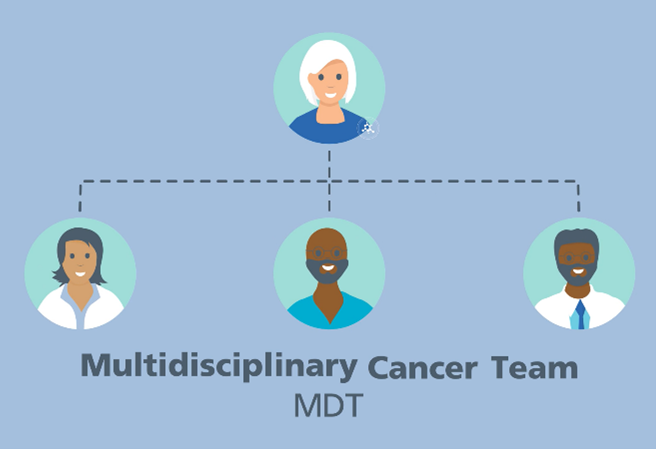
- Consultant Surgeons
Consultant Surgeons
We have a team of 8 colorectal surgeons whom are vastly experienced and respected in their specialist areas


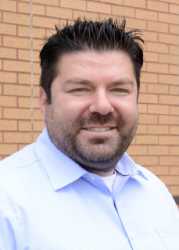




- Colorectal Cancer Nurse Specialists (CNS)
Colorectal Cancer Nurse Specialists (CNS)
These experienced professionals support you throughout your care. They will be there at clinics when we meet you for the first time, as well as during the follow-up periods. They work very closely with the colorectal surgeons and the oncology teams to ensure all patients are supported throughout their journey.
- Sr Catherine Boyle
- Sr Maria McEneaney
- Sr Helen Brookes
- Sr Sarah Tomlinson
- Sr Rebekah Hitchon
- Advanced Specialist Practitioners (ASP)
Our Advanced Specialist Practitioners support patients from referral to the service, and through the investigation process. These experienced practitioners will ensure your investigations are carried out in a timely manner and results sent to you and your GP.
- ASP Claire Stephens
- ASP Corrie Rosenburg
- Consultant Radiologists
Our expert radiology team work closely with the rest of the team to diagnose and treat colorectal conditions using medical imaging. They are crucial in the diagnosis process of our patients. Medical imaging investigations include x-ray, MRI, CT and ultrasound.

Dr Gagan Thind
Consultant Radiologist
- Consultant Histopathologists
Histopathologists study tumours by examining biopsies using microscopes. The histopathologists within the team are responsible for making tissue diagnosis and helping the team manage a patients care.
- Consultant Oncologists
The oncology team provides medical treatment for people diagnosed with cancer. Oncologists treat cancer using chemotherapy, radiotherapy and other medications. The Rosemere Centre at Preston is home to all our oncology teams. It provides a calm and supportive environment in which you will attend for appointments with your oncologist and receive your treatment.
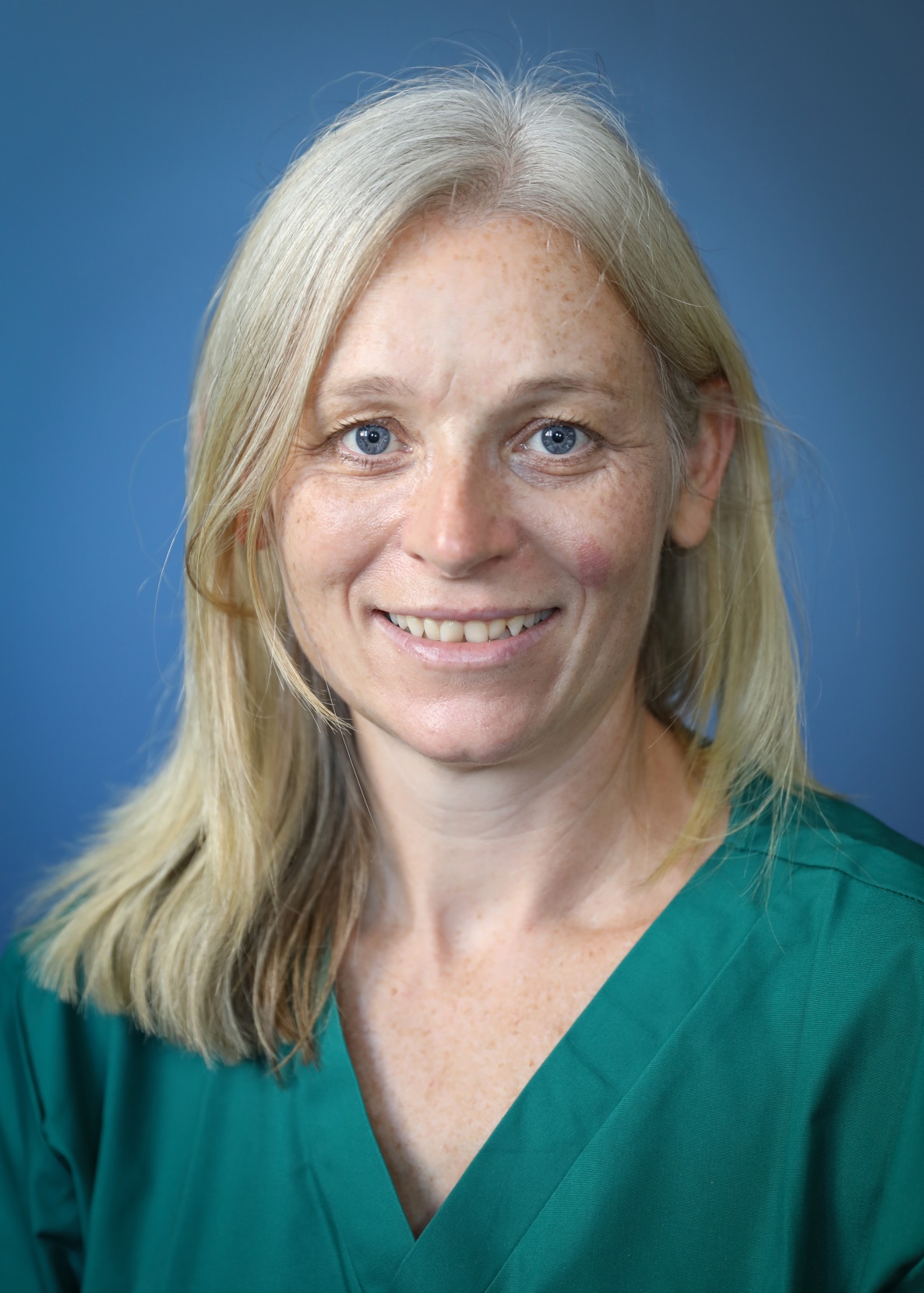
Dr Deborah Williamson
Consultant Histopathologist
- Dr Sin Lau
- Dr Beaumont
- Dr James Haston
- Consultant Endoscopist
The endoscopy team care for you before, during and after an endoscopic procedure. These investigations include colonoscopy, flexible sigmoidoscopy and gastroscopy. They work closely with the rest of the multidisciplinary team in diagnosing colorectal conditions.
- Mr Rob Hart
- Specialist Stoma Nurses
We have a dynamic team of stoma nurses that support and care for patients that require surgical resections and stomas.
Diane Sheard - lead stoma nurse
Carol Prescott - stoma nurse
Lottie White - stoma nurse
Debra Paxton - stoma HCA
Caroline Watson - stoma HCA
- Secretarial and Admin Support-MDT Co-ordinator
Our dedicated admin team collect all the relevant information required for us to plan your care. They help us communicate effectively with you and your doctor.
- Debbie Hall (MDT Co-ordinator)
- Louise Curwen (Mr Hany/Mr Bhowmick secretary)
- Jill Slater (Mr Peristerakis/Miss Jadav secretary)
- Helen Wilding (Mr Mitchell/Mr Beverdige secretary)
- Jane stone (Mr Parkin/Mr Barrow secretary)
Your Multidisciplinary Cancer Care Team
When you visit The Department of Colorectal Surgery at Lancashire Teaching Hospitals NHS Foundation Trust, you may be asked about participation in a research study. We are passionate about including our patients in research as we know that through that process we can continue to improve clinical care and patient experience.
Mandie Alty is our lead colorectal research nurse. She coordinates a number of different studies running locally within the department and larger national and international trials. We run studies focussed on early diagnosis of colorectal and anal cancer, new cancer treatments and improving patient experience and surgical outcomes.
If you would like any further information regarding any of the research studies listed below, please contact Mandie:
Email: amanda.alty@lthtr.nhs.uk
Telephone: 01772 522031
%20Alty.jpg)
Current Trials and Research Studies
Research studies in the spotlight
CAMELOT

Camelot is a national study run by University Hospital Southampton and Bristol Trials Centre. The aim is to evaluate the effectiveness of a wound infusion for pain relief in patients having major emergency abdominal surgery. The intervention is a thin plastic tube called a rectus sheath catheter which infuses local anaesthetic into the abdominal wall after surgery. Patients are randomised to have either the local anaesthetic catheter or a ‘sham’ catheter where there is no anaesthetic infused, in addition to standard pain relief. The research nurse and patient are unaware of which catheter was used and patients are reviewed for the first 5 days following surgery to measure their pain scores. Dr Carolynn Wai Consultant Anaesthetist leads this study in Preston. Mr Ed Parkin is the surgical lead. Further information is available in the link below:
https://bristol-trials-centre.bristol.ac.uk/details-of-studies/camelot/
DETECT-2

The direct to patient testing at cancer diagnosis for precision prevention-2 study (DETECT-2) is being done to evaluate genetic testing at a patient’s home. Genetic testing is sometimes advised for patients after they have been diagnosed with certain types of bowel, womb and ovarian cancers and these patients are typically offered an appointment in a genetics clinic. However, in DETECT-2 patients can be randomised to either:
- Receiving genetic testing information from a member of their cancer team in hospital. This method of genetic testing is called mainstreaming and is the standard way of doing genetic screening in most UK hospitals.
- Receiving genetic testing information on a specially developed web-app decision aid. This group will be offered genetic testing at home. This method of genetic testing is called direct-to-patient testing. This home testing is a new idea which may lead to a better experience for patients.
Specialists at Queen Mary University of London are running the study. Miss Gemma Owens (consultant gynaecologist) and Miss Emma Davies (consultant colorectal surgeon) are the local study leads. Here is a link to the Detect-2 website:
AMEX
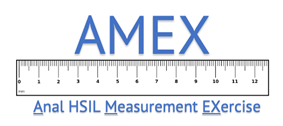
AMEX is a collaboration between surgeons at Lancashire Teaching Hospitals, The Christie and The University of Manchester. It is a study exploring methods of measuring a precancerous condition that causes lumps around the anus called High grade Squamous Intraepithelial Lesions (HSIL). Patients with a diagnosis of anal HSIL having an examination under anaesthetic either in Chorley or in Preston may be approached about participation. A trainee surgeon called David Finch is running this study as part of his PhD, with supervision from Mr Peter Mitchell and Mr Ed Parkin. Prof Andrew Renehan is David’s supervisor at The University of Manchester. Below is a link to Professor Renehan’s research group at The University of Manchester:
https://research.manchester.ac.uk/en/persons/andrew.renehan
Other colorectal surgery research studies:
Distal limb feeding study – We are collaborating with Lancaster University to find out if for patients with an ileostomy, feeding the ‘rested bowel’ via the stoma helps increase the growth of friendly bacteria. The feeding is carried out for a 4-week period before stoma reversal. The aim of the study is to reduce the risk of complications and possibly reduce the recovery time after the ileostomy has been reversed. Mr Arnie Bhowmick and Mr Peter Mitchell lead this study in collaboration with Dr Rachael Rigby from Lancaster University:
https://www.lancaster.ac.uk/health-and-medicine/about-us/people/rachael-rigby
Neurotensin and IL-8 study – Collaborating again with Lancaster University, we are collecting blood samples from patients having surgery for colorectal cancer. The aim of the study is to measure levels of Neurotensin and Interleukin-8 to see if they can be used as a screening marker for colorectal cancer and polyps in the bowel. This study is led by Mr Arnie Bhowmick, also in collaboration with Dr Rachael Rigby:
https://www.lancaster.ac.uk/health-and-medicine/about-us/people/rachael-rigby
Rossini 2 – Is a national study run by surgeons at the University of Birmingham. Patients having abdominal surgery with an incision over 5 cm maybe be approached. It is a randomised controlled trial aiming to find the best way to decrease rates of wound infections after major surgery. We are running this study together with the gynaecology team in Preston. Mr Ed Parkin is the study lead in Preston. The current phase of the trial is comparing standard care to:
- A DACC (Dialkylcarbamoyl chloride) impregnated wound dressing for 7 days.
- In theatre, prior to the surgical closure of the wound – the surgical team change their gloves and instruments.
We will follow you up whilst in hospital and 30 days after your surgery to see how well your wound has healed and if you have experienced any issues with it. Learn more on the Rossini 2 website:
https://www.birmingham.ac.uk/research/bctu/trials/coloproctology/rossini-2
DXCover Study – We are working with an innovative scientific company in Glasgow who are developing a ‘liquid biopsy’ for early detection of colorectal cancer using an Infrared Spectroscopy. This is an emerging technique that analyses the chemical composition of body fluids. Through our hospital Cancer Research Tissue Bank, we are collecting blood samples from patients having diagnostic colonoscopy and surgery for colorectal cancer to help develop this blood test. Mr Peter Mitchel and Mr Ed Parkin coordinate this study with Professor Matt Baker. Below is a link to the DXCover website:
Corsica is another study where surgeons at Lancashire Teaching Hospitals are collaborating with The University of Manchester and The Christie Hospital. The aim is to develop a ‘core outcome set’ for anal HSIL (High grade Squamous Intraepithelial Lesions), a precancerous condition affecting the bottom. A core outcome set is an agreed list of outcome measures that should be used in future research studies. David Finch is running this project, supervised by Mr Ed Parkin and Mr Peter Mitchell. The first phase was an international survey of patients with anal HSIL and healthcare professionals (Autumn 2024). There was a consensus meeting in March 2025. Following this, the core outcome set to be used in future clinical trials and research studies about anal HSIL will be produced. Below is a link to further information about core outcome sets from the COMET initiative:
https://www.comet-initiative.org/
Oncore is a national registry study run by Professor Andrew Renehan and colleagues at The Christie hospital. Dr Debbie Williamson is the local lead at Lancashire Teaching Hospitals. Oncore collects data from patients with rectal cancer who have had a ‘complete response’ after radiotherapy and/or chemotherapy. Some of these patients may be managed via a ‘watch and wait’ approach and so avoid major surgery. This study helps further our understanding about tumours that disappear with chemotherapy and radiotherapy. Further information is available here:
https://complete-response.com/
Further information on current trials and research studies is avaible here:
https://sites.google.com/nihr.ac.uk/tics/home/home_preston/colorectal-v2
Departmental Publications
These are the most recent peer-reviewed publications from The Department of Colorectal Surgery, Lancashire Teaching Hospitals NHS Foundation Trust:
Laparoscopic-assisted extralevator abdominoperineal excision (ELAPE), posterior vaginectomy and perineal turnover flap for residual anal squamous cell carcinoma-A video vignette.
Alam NN, Mitchell PJ, Chaudhary M, Dalal M, Iyer S, Parkin E. Colorectal Dis. 2024 Dec 2. doi: 10.1111/codi.17253. Online ahead of print. PMID: 39620252
Evaluating the Effect of a Novel Digital Ostomy Device on Leakage Incidents, Quality of Life, Mental Well-Being, and Patient Self-Care: An Interventional, Multicentre Clinical Trial.
Brady RRW, Sheard D, Alty M, Vestergaard M, Boisen EB, Ainsworth R, Hansen HD, Ajslev TA. J Clin Med. 2024 Sep 24;13(19):5673. doi: 10.3390/jcm13195673. PMID: 39407731
Brady RR, Sheard D, Alty M, Vestergaard M, Boisen EB, Ainsworth R, Hansen HD, Ajslev TA. Br J Nurs. 2025 Jan 13;34(1):14-22. doi: 10.12968/bjon.2025.0278. PMID: 39792106
An extraperitoneal single-port robotic approach to low anterior resection-Cadaveric experience.
Hany TS, Stein H, Bhowmick AK.Colorectal Dis. 2024 Aug 6. doi: 10.1111/codi.17120. Online ahead of print.PMID: 39107877
SF-CORNER (splenic flexure colorectal cancer): an international survey of operative approaches and outcomes for cancers of the splenic flexure.
Sekhar H, Dyer M, Khan M, Mitchell PJ, West NP, Moug S, Vimalachandran D; SF‐CORNER collaborative study group.Colorectal Dis. 2024 Apr;26(4):660-668. doi: 10.1111/codi.16895. Epub 2024 Feb 12.PMID: 38345176
Predictors of recurrence following local excision for early-stage anal squamous cell carcinoma.
Parkin E, Kallipershad S, Nasser A, Al-Mudhaffer M, Rosero D, Haston J, Williamson D, Mitchell P.Eur J Surg Oncol. 2023 Nov;49(11):107093. doi: 10.1016/j.ejso.2023.107093. Epub 2023 Sep 22.PMID: 37801832
Extraperitoneal approach to left-sided colorectal resections (EXPERTS procedure).
Hany TS, Jadav AM, Parkin E, Bhowmick AK.Br J Surg. 2023 Sep 6;110(10):1348-1354. doi: 10.1093/bjs/znad173.PMID: 37535960
Delay in loop ileostomy reversal surgery does not impact upon post-operative clinical outcomes. Complications are associated with an increased loss of microflora in the defunctioned intestine.
Beamish EL, Johnson J, Shih B, Killick R, Dondelinger F, McGoran C, Brewster-Craig C, Davies A, Bhowmick A, Rigby RJ.Gut Microbes. 2023 Jan-Dec;15(1):2199659. doi: 10.1080/19490976.2023.2199659.PMID: 37055940
The Extraperitoneal Approach to Left-Sided Colorectal Rectal Resections: EXPERTS Procedure.
Hany TS, Jadav AM, Lamoon C, Cassidy K, Bhowmick AK.Ann Surg Oncol. 2023 Mar;30(3):1739-1740. doi: 10.1245/s10434-022-12848-8. Epub 2022 Dec 21.PMID: 36542250
ASO Author Reflections: From the Retroperitoneal to the TME Plane: Accessing the Holy Plane from the Holy Plane.
Hany T, Jadav A, Cassidy K, Lamoon C, Bhowmick A.Ann Surg Oncol. 2023 Mar;30(3):1741. doi: 10.1245/s10434-022-12963-6. Epub 2022 Dec 21.PMID: 36542248
The Extraperitoneal Approach to Left-Sided Colorectal Resections: A Human Cadaveric Study.
Hany TS, Jadav AM, Parkin E, McAleer J, Barrow P, Bhowmick AK.J Surg Res. 2023 Mar;283:172-178. doi: 10.1016/j.jss.2022.10.038. Epub 2022 Nov 18.PMID: 36410233
A cohort study of duplicate faecal immunochemical testing in patients at risk of colorectal cancer from North-West England.
Hunt N, Rao C, Logan R, Chandrabalan V, Oakey J, Ainsworth C, Smith N, Banerjee S, Myers M.BMJ Open. 2022 Apr 13;12(4):e059940. doi: 10.1136/bmjopen-2021-059940.PMID: 35418441
Detecting colorectal cancer using infrared spectroscopy.
Cameron D, Talari A, Rehman I, Mitchell P, Parkin E.Br J Surg. 2022 Mar 15;109(4):e61-e62. doi: 10.1093/bjs/znab462.PMID: 35141745
Radical surgery versus organ preservation via short-course radiotherapy followed by transanal endoscopic microsurgery for early-stage rectal cancer (TREC): a randomised, open-label feasibility study.
Bach SP, Gilbert A, Brock K, Korsgen S, Geh I, Hill J, Gill T, Hainsworth P, Tutton MG, Khan J, Robinson J, Steward M, Cunningham C, Levy B, Beveridge A, Handley K, Kaur M, Marchevsky N, Magill L, Russell A, Quirke P, West NP, Sebag-Montefiore D; TREC collaborators.Lancet Gastroenterol Hepatol. 2021 Feb;6(2):92-105. doi: 10.1016/S2468-1253(20)30333-2. Epub 2020 Dec 11.PMID: 33308452
Perineal Turn over Perforator Flap: A Novel Surgical Technique for Combined Perineal and Posterior Vaginal Wall Reconstruction.
Moura FS, Chasapi M, Mitchell P, Dalal MD.World J Plast Surg. 2021 Jan;10(1):114-118. doi: 10.29252/wjps.10.1.114.PMID: 33833963
Current Management of Malignant Colorectal Polyps Across a Regional United Kingdom Cancer Network.
Sharma V, Junejo MA, Mitchell PJ.Dis Colon Rectum. 2020 Jan;63(1):39-45. doi: 10.1097/DCR.0000000000001509.PMID: 31569095
Collaborative Research
These are recent peer-reviewed surgical publications that we have collaborated on with colleagues from other institutions:
Characterisation of older patients that require, but do not undergo, emergency laparotomy: a multicentre cohort study.
Price A, McLennan E, Knight SR, Reeves N, Chandler S, Boyle J, Pearce L, Moug SJ; ELF2 Study Group.Br J Anaesth. 2024 Nov;133(5):973-982. doi: 10.1016/j.bja.2024.07.009. Epub 2024 Oct 4.PMID: 39366845
Anastomotic leak after manual circular stapled left-sided bowel surgery: analysis of technology-, disease-, and patient-related factors.
European Society of Coloproctology (ESCP) Circular Stapled Anastomosis Working Group and 2017 European Society of Coloproctology (ESCP) Collaborating Group.BJS Open. 2024 Sep 3;8(5):zrae089. doi: 10.1093/bjsopen/zrae089.PMID: 39441693
Developing a curriculum for advanced fellowship training in complex cancer for the UK.
Mohan H, Harji D, Drami I, Griffiths B, Larkins K, Boyle K, Daniels IR, Baker R, Jenkins JT; Curriculum for Complex Cancer Working Group [Colorectal] the ACPGBI Advanced Malignancy Subcommittee, UK Pelvic Exenteration Network [UKPEN] and Dukes' Club.Colorectal Dis. 2024 Aug;26(8):1551-1559. doi: 10.1111/codi.17084. Epub 2024 Jul 11.PMID: 38992945
A prognostic model for use before elective surgery to estimate the risk of postoperative pulmonary complications (GSU-Pulmonary Score): a development and validation study in three international cohorts.
NIHR Global Health Research Unit on Global Surgery; STARSurg Collaborative.Lancet Digit Health. 2024 Jul;6(7):e507-e519. doi: 10.1016/S2589-7500(24)00065-7.PMID: 38906616
The 'Pelvic exenteration lexicon': Creating a common language for complex pelvic cancer surgery.
Burns EM, Quyn A; Lexicon Collaboration of UKPEN and the ACPGBI Advanced Cancer subcommittee.Colorectal Dis. 2023 May;25(5):888-896. doi: 10.1111/codi.16476. Epub 2023 Feb 15.PMID: 36660781
Quality-of-life outcomes in older patients with early-stage rectal cancer receiving organ-preserving treatment with hypofractionated short-course radiotherapy followed by transanal endoscopic microsurgery (TREC): non-randomised registry of patients unsuitable for total mesorectal excision.
Gilbert A, Homer V, Brock K, Korsgen S, Geh I, Hill J, Gill T, Hainsworth P, Tutton M, Khan J, Robinson J, Steward M, Cunningham C, Kaur M, Magill L, Russell A, Quirke P, West NP, Sebag-Montefiore D, Bach SP; TREC collaborators.Lancet Healthy Longev. 2022 Dec;3(12):e825-e838. doi: 10.1016/S2666-7568(22)00239-2. Epub 2022 Nov 17.
Colorectal Endoscopic Stenting Trial (CReST) for obstructing left-sided colorectal cancer: randomized clinical trial.
CReST Collaborative Group.Br J Surg. 2022 Oct 14;109(11):1073-1080. doi: 10.1093/bjs/znac141.PMID: 35986684
The impact of surgical delay on resectability of colorectal cancer: An international prospective cohort study.
COVIDSurg Collaborative.Colorectal Dis. 2022 Mar 14;24(6):708-26. doi: 10.1111/codi.16117. Online ahead of print.PMID: 35286766
Death following pulmonary complications of surgery before and during the SARS-CoV-2 pandemic.
STARSurg Collaborative and COVIDSurg Collaborative.Br J Surg. 2021 Dec 1;108(12):1448-1464. doi: 10.1093/bjs/znab336.PMID: 34871379
Watch and wait after a clinical complete response in rectal cancer patients younger than 50 years.
Bahadoer RR, Peeters KCMJ, Beets GL, Figueiredo NL, Bastiaannet E, Vahrmeijer A, Temmink SJD, Meershoek-Klein Kranenbarg WME, Roodvoets AGH, Habr-Gama A, Perez RO, van de Velde CJH, Hilling DE; International Watch & Wait Database Consortium (IWWD).Br J Surg. 2021 Dec 17;109(1):114-120. doi: 10.1093/bjs/znab372.PMID: 34738104
Effect of COVID-19 pandemic lockdowns on planned cancer surgery for 15 tumour types in 61 countries: an international, prospective, cohort study.
COVIDSurg Collaborative.Lancet Oncol. 2021 Nov;22(11):1507-1517. doi: 10.1016/S1470-2045(21)00493-9. Epub 2021 Oct 5.PMID: 34624250
SARS-CoV-2 infection and venous thromboembolism after surgery: an international prospective cohort study.
COVIDSurg Collaborative; GlobalSurg Collaborative.Anaesthesia. 2022 Jan;77(1):28-39. doi: 10.1111/anae.15563. Epub 2021 Aug 24.PMID: 34428858
SARS-CoV-2 vaccination modelling for safe surgery to save lives: data from an international prospective cohort study.
COVIDSurg Collaborative, GlobalSurg Collaborative.Br J Surg. 2021 Sep 27;108(9):1056-1063. doi: 10.1093/bjs/znab101.PMID: 33761533
Preoperative nasopharyngeal swab testing and postoperative pulmonary complications in patients undergoing elective surgery during the SARS-CoV-2 pandemic.
COVIDSurg Collaborative.
Br J Surg. 2021 Jan 27;108(1):88-96. doi: 10.1093/bjs/znaa051.
PMID: 33640908
Elective Cancer Surgery in COVID-19-Free Surgical Pathways During the SARS-CoV-2 Pandemic: An International, Multicenter, Comparative Cohort Study.
Glasbey JC, Nepogodiev D, Simoes JFF, Omar O, Li E, Venn ML, Pgdme, Abou Chaar MK, Capizzi V, Chaudhry D, Desai A, Edwards JG, Evans JP, Fiore M, Videria JF, Ford SJ, Ganly I, Griffiths EA, Gujjuri RR, Kolias AG, Kaafarani HMA, Minaya-Bravo A, McKay SC, Mohan HM, Roberts KJ, San Miguel-Méndez C, Pockney P, Shaw R, Smart NJ, Stewart GD, Sundar Mrcog S, Vidya R, Bhangu AA; COVIDSurg Collaborative.J Clin Oncol. 2021 Jan 1;39(1):66-78. doi: 10.1200/JCO.20.01933. Epub 2020 Oct 6.PMID: 33021869
Fernandez LM, São Julião GP, Figueiredo NL, Beets GL, van der Valk MJM, Bahadoer RR, Hilling DE, Meershoek-Klein Kranenbarg E, Roodvoets AGH, Renehan AG, van de Velde CJH, Habr-Gama A, Perez RO; International Watch & Wait Database Consortium.Lancet Oncol. 2021 Jan;22(1):43-50. doi: 10.1016/S1470-2045(20)30557-X. Epub 2020 Dec 11.PMID: 33316218
Outcomes from elective colorectal cancer surgery during the SARS-CoV-2 pandemic.
COVIDSurg Collaborative.Colorectal Dis. 2020 Nov 15;23(3):732-49. doi: 10.1111/codi.15431. Online ahead of print.PMID: 33191669
Hartmann's procedure versus intersphincteric abdominoperineal excision (HiP Study): a multicentre prospective cohort study.
Fowler H, Clifford R, Sutton P, Watson A, Fearnhead N, Bach S, Moran B, Rose A, Jackson R, Vimalachandran D; HiP collaborators.Colorectal Dis. 2020 Dec;22(12):2114-2122. doi: 10.1111/codi.15366. Epub 2020 Oct 2.PMID: 32939956
Safety of hospital discharge before return of bowel function after elective colorectal surgery.
EuroSurg Collaborative.Br J Surg. 2020 Apr;107(5):552-559. doi: 10.1002/bjs.11422. Epub 2020 Jan 24.PMID: 31976560
13
Safety and efficacy of non-steroidal anti-inflammatory drugs to reduce ileus after colorectal surgery.
EuroSurg Collaborative.Br J Surg. 2020 Jan;107(2):e161-e169. doi: 10.1002/bjs.11326. Epub 2019 Oct 9.PMID: 31595986

